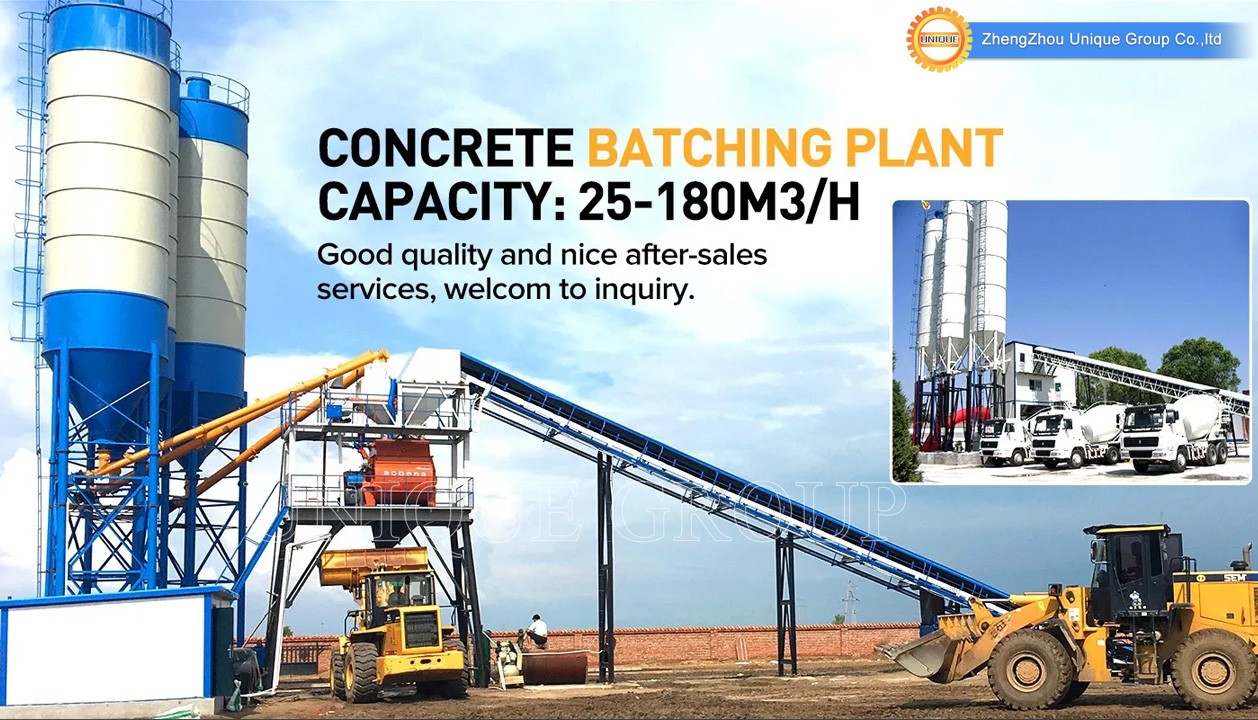
In the construction industry, facilities used for centralized mixing of concrete are professionally called "concrete mixing plants", also called concrete mixing plants, or more concisely called "mixing plants". These plants are an integral part of the construction process because they can efficiently produce large quantities of high-quality concrete to meet the needs of various construction projects.
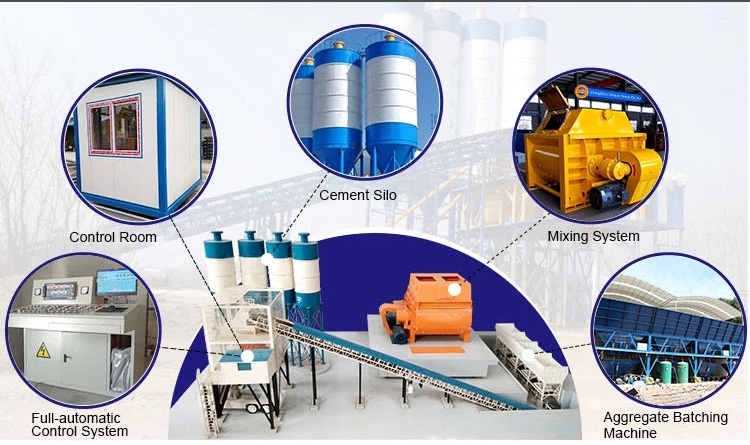
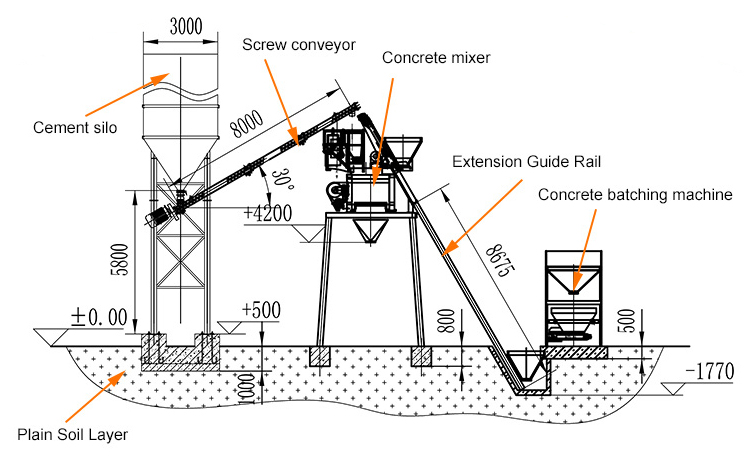
What are the components of a batching plant? What is the structure of concrete batching plant?
Concrete mixing plants are mainly composed of five major systems, including a concrete mixer, a material weighing system, a material conveying system, a material storage system, and a control system, as well as other ancillary facilities. Compared with the aggregate metering of the station, the floor aggregate metering reduces four intermediate links, and the material metering is vertical, which saves metering time, thus greatly improving production efficiency.
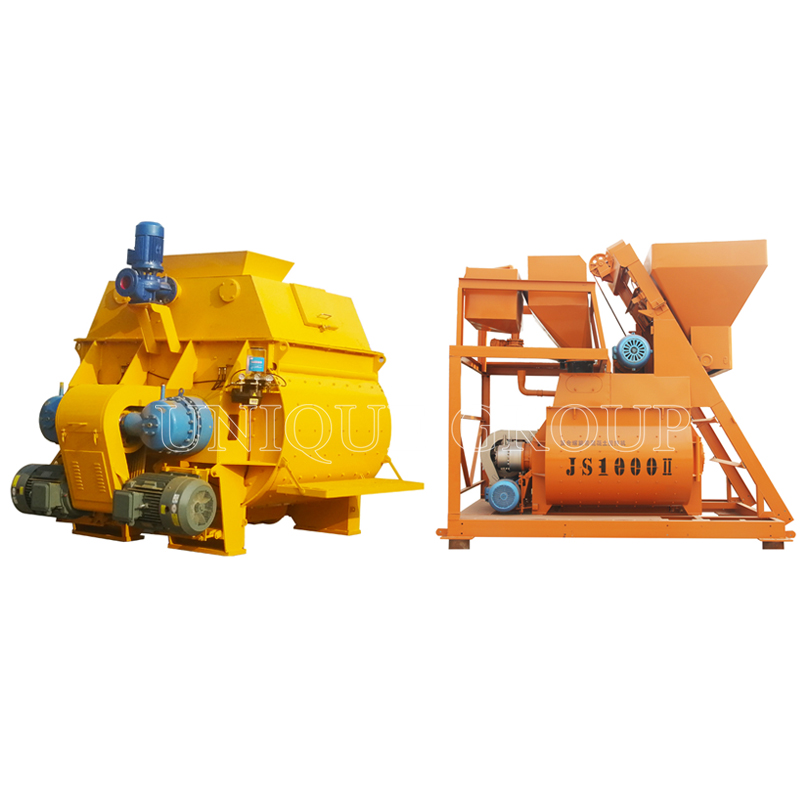
Core equipment, used to mix raw materials such as cement, aggregates, and water into concrete.
Twin-shaft forced mixers are often used, which have high mixing efficiency and good uniformity.
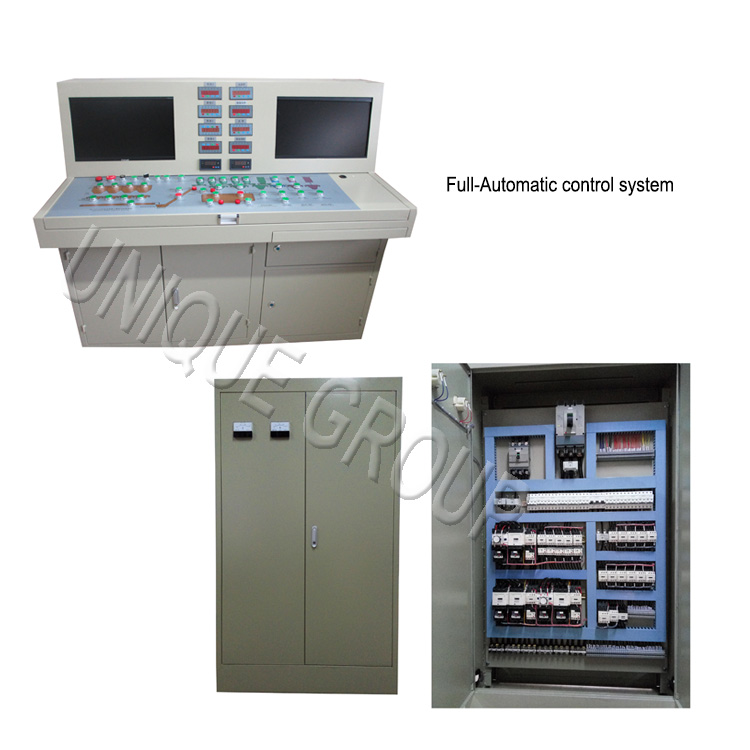
Control syste
Automatically control the production process of the mixing plant, including proportion setting, weighing, mixing, etc. Improve production efficiency and reduce manual intervention.
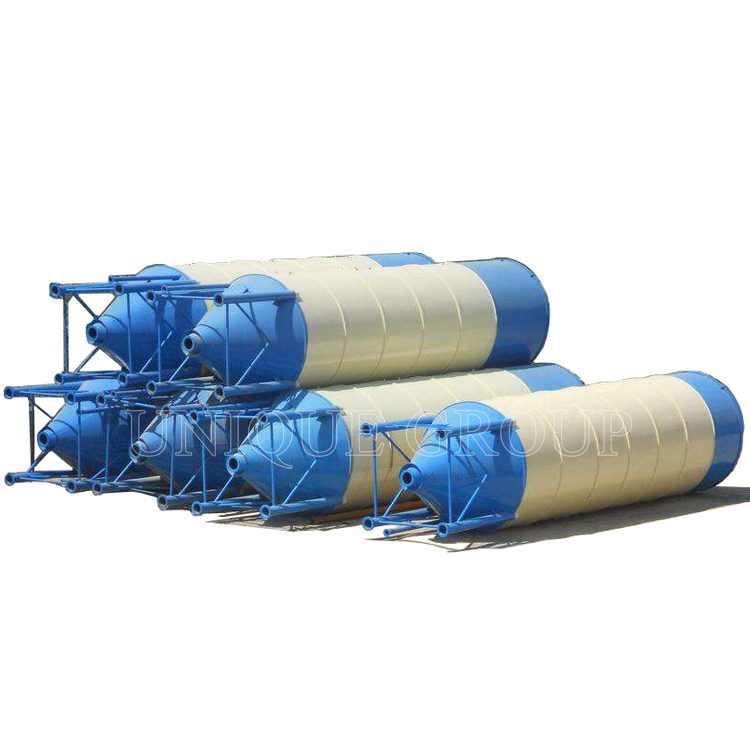
Material storage system
Including cement silos, aggregate silos, etc., used to store raw materials such as sand, stone, and cement.
Design capacity and quantity according to production needs to ensure the stability of raw material supply.
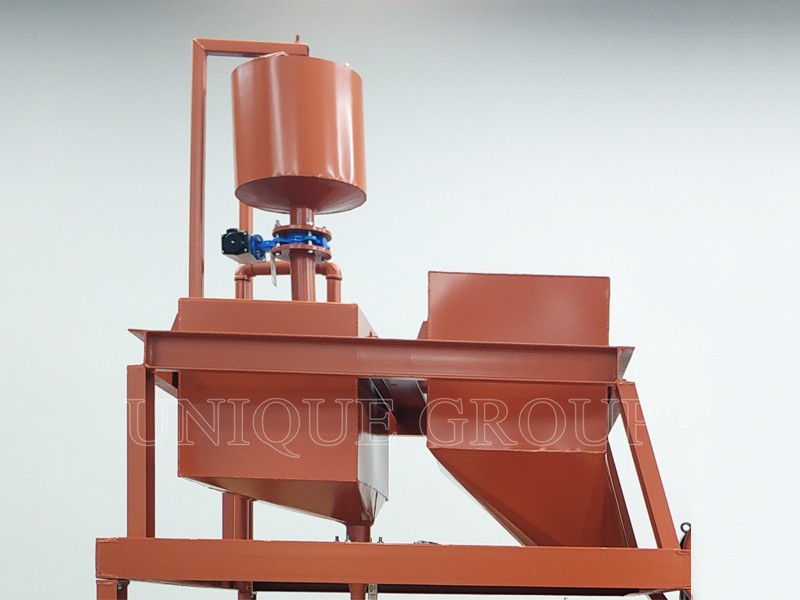
Material weighing syste
Responsible for accurately measuring the amount of raw materials such as cement, aggregates, and water.
Usually composed of electronic scales, sensors, and controllers to ensure the accuracy of concrete proportions.
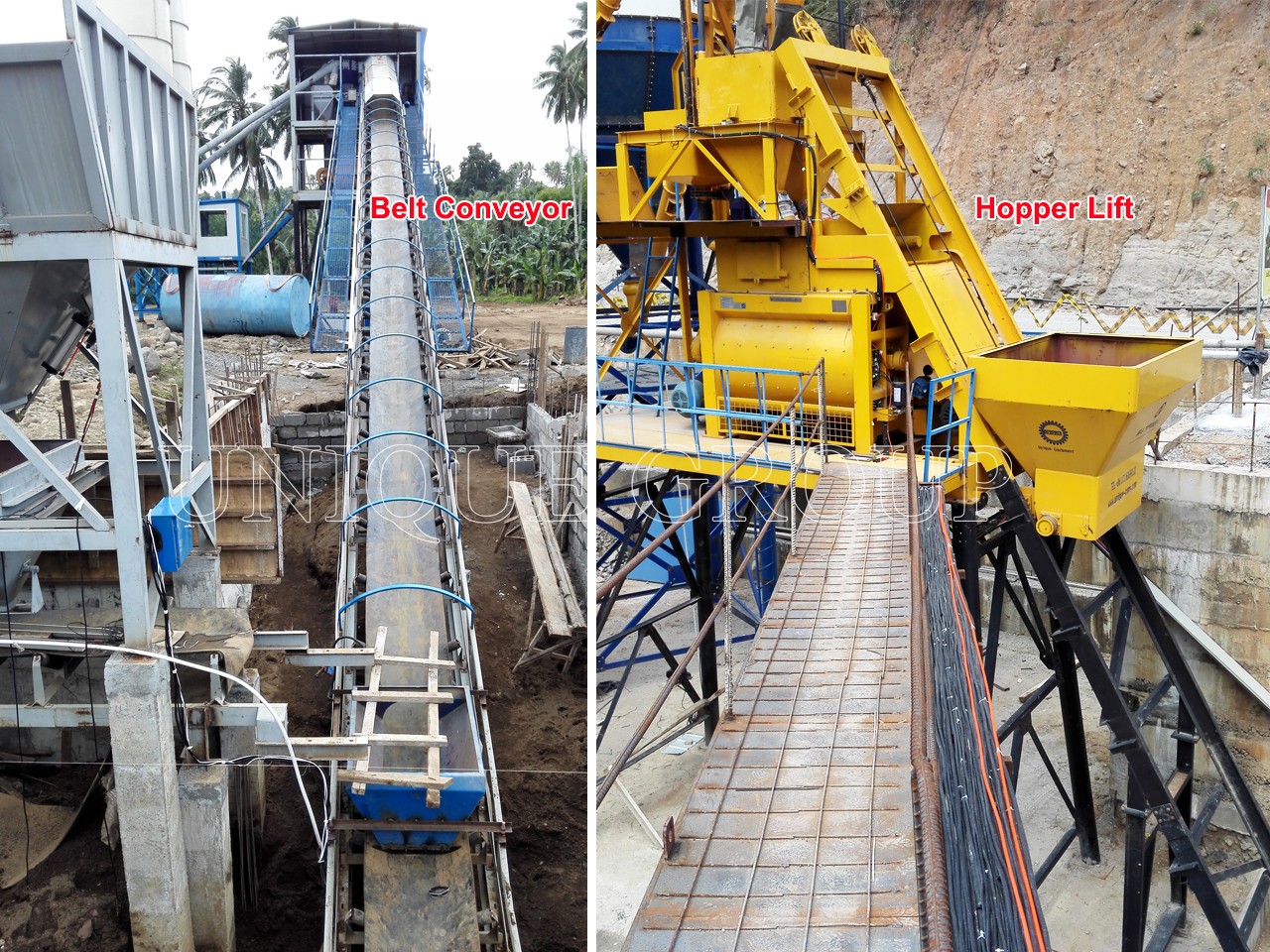
Material conveying system
Including belt conveyors, bucket elevators, etc., used to transport raw materials from the storage area to the mixer.
Ensure the continuity and stability of material transportation.
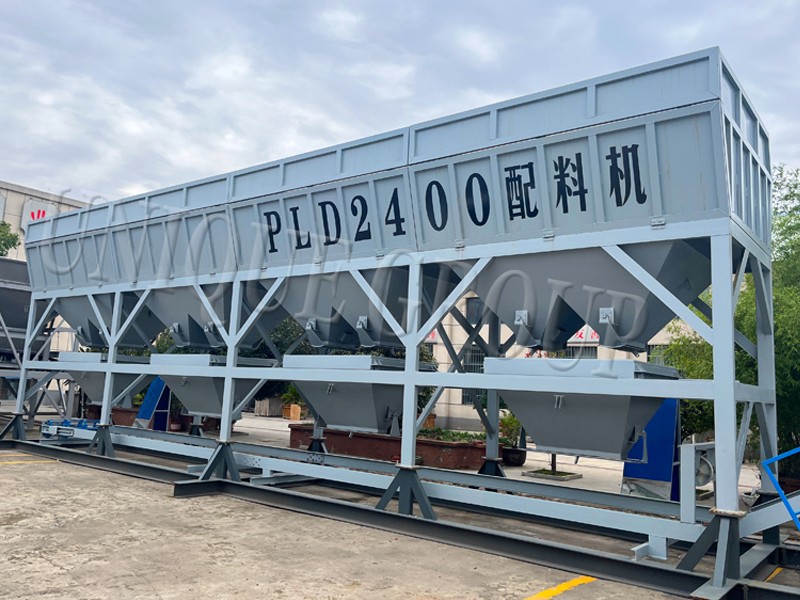
Batching Machine
Aggregate batching machines have two ways of weighing, one is accumulating while the other is separating weighing.
It can automatically finish the batching procedures of 3~6 kinds of materials (second grade concrete) such as sand, stone, cement according to user's design.
The functionalities and applications of different types, including ready-mix, central mix, dry batch, mobile batch, stationary batch, continuous batching plants and Stabilized soil mixing plant. Understanding these plant types is essential for informed decision-making and successful project implementation in the construction field. Here are the answers of what types of concrete plant are they.
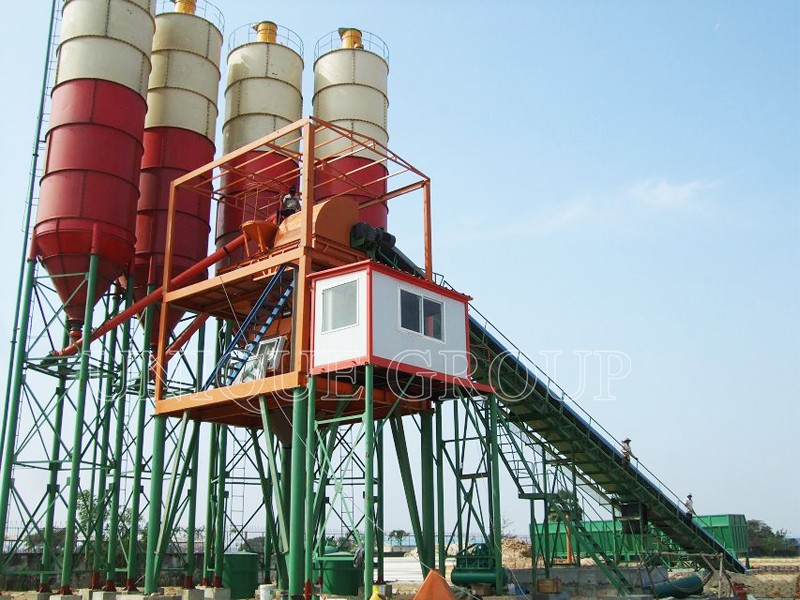
Type 1: Stationary Belt Type Concrete Batching Plant
Belt type capacity from 60m3/h ~ 240m3/h
Belt Type Concrete Batching Plant is a concrete batching plant that uses a belt conveyor for material transportation and mixing. Its main features include stable concrete transportation, precise materials batching and high efficiency, high degree of automation, and suitability for large-scale production. thus it has large land occupation.
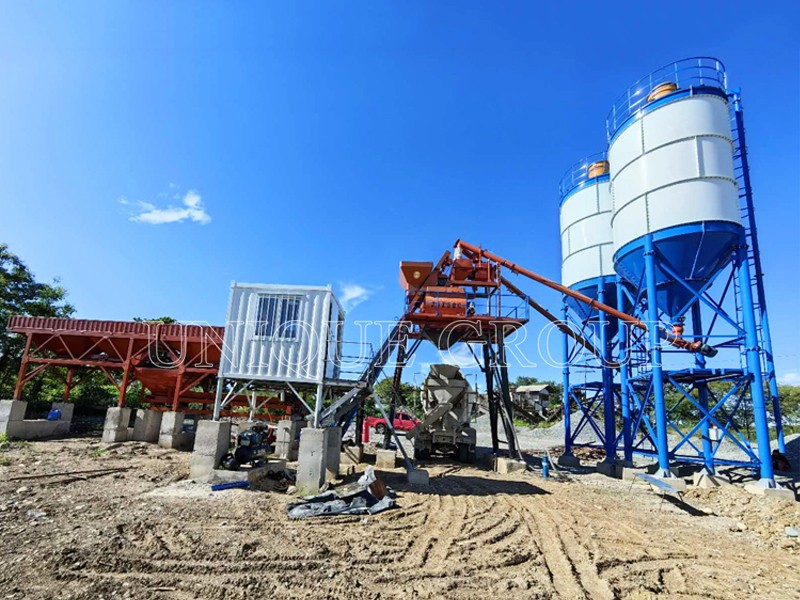
Type 2: Stationary Hopper lift Concrete Batching Plant:
Hopper lift type capacity from 25m3/h ~75m3/h
Hopper lift Concrete Batching Plant is a concrete production equipment that uses bucket elevator to transport aggregate to the mixing host for mixing.
The Concrete Plant compact structure and efficient production: With modular structure design, the whole station occupies a small area and can be flexibly placed according to the actual situation on site.
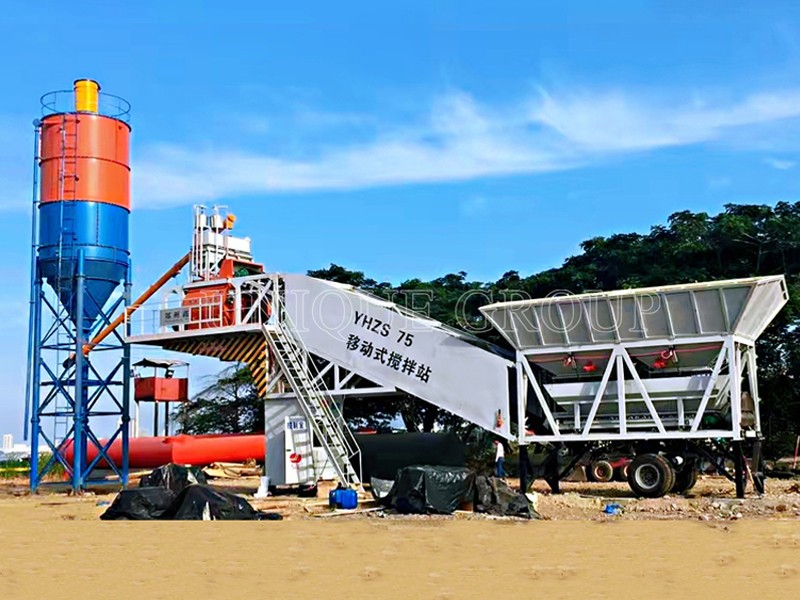
Type 3: Mobile Concrete Batching Plant:
Hauling mobile type capacity from 25m3/h ~100m3/h
The mobile concrete mixing plant is composed of various functional parts of the concrete mixing plant integrated into a trailer unit, which is installed on a towable chassis with wheels to achieve maximum mobility and rapid installation.
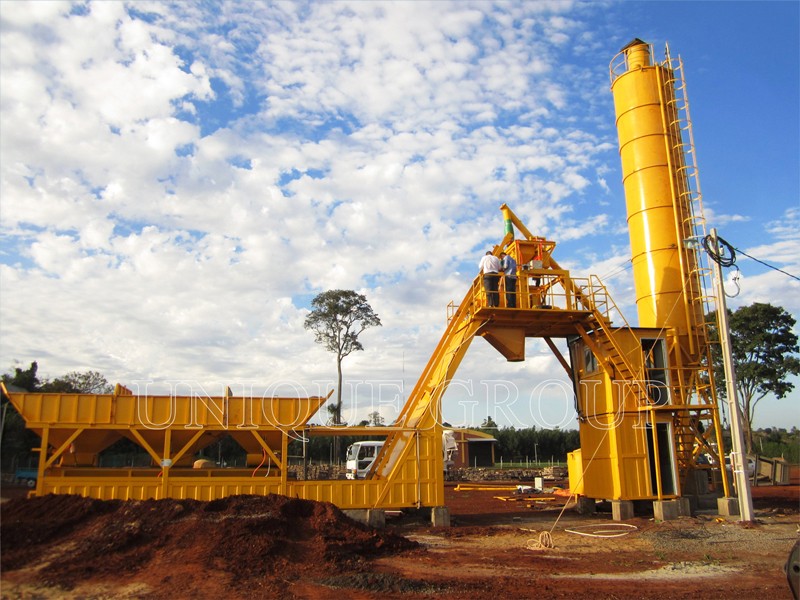
Type 4: Foundation-free concrete mixing station
The foundation-free concrete mixing station is a concrete mixing equipment that can be quickly installed and flexibly moved.
For each part of foundation free concrete batching plant, there is a steel base. We just need to make sure the job site ground is hard and dry, we can place the machine on the ground and start to work directly. In this way, we can save much time and cost to make reinforced concrete foundation. And it is also very easy to disassemble and move to another job site.
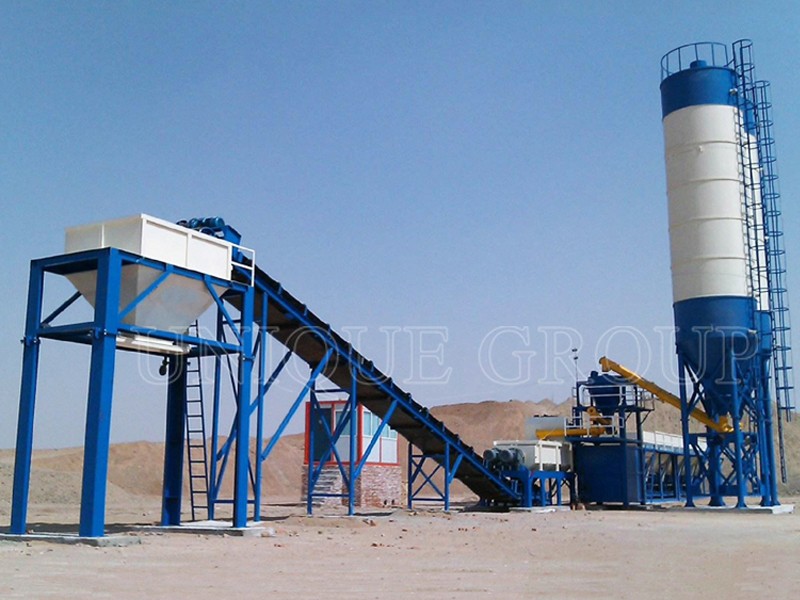
Type 5: Stabilized soil mixing plant:
WCB series soil cement mixing plant is a complete set of special equipment for continuous mixing of pavement base materials. The plant produces stabilized soil with different gradings in a continuous way. easy operation, compact structure, reasonable layout.
Suitable for mixing pavement base materials of construction Project such as high grade roads, urban roads, airports, and docks.
WCB stabilized soil mixing plant is consists of Aggregate Batcher, Belt Conveyor, Silos, Screw Conveyor, Continuous Mixer,Finished Products Storage Hopper, Control Room and Pneumatic System.
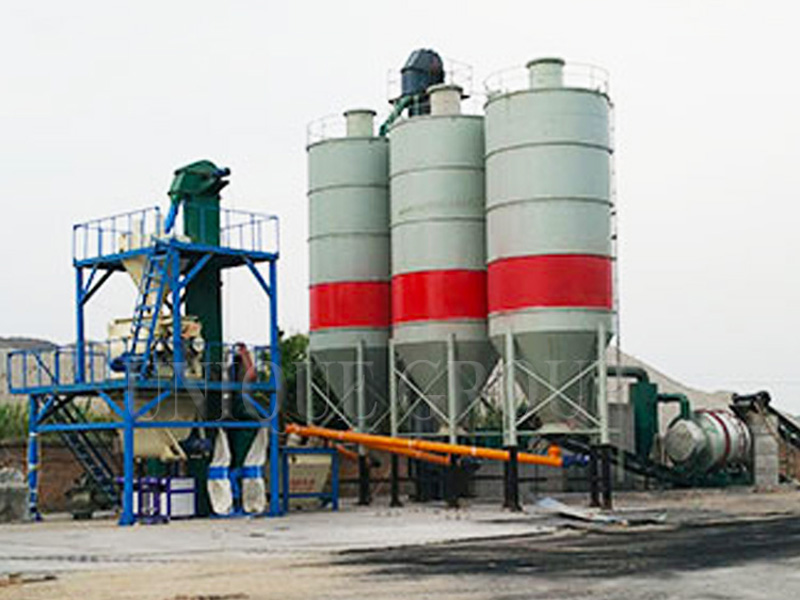
Type 6: Dry Mix Concrete Batching Plant:
This dry mortar plant can also called energy-saving dry mortar mixing line, Which can mix dry aggregates, inorganic cementitious materials (such as cement, fly ash), additives into the bin, under the automatic control system, it can realize automation in collecting, feeding, filling and packing. It is the ideal selection for set up a dry mortar factory.
Main configuration
Electric control cabinet; Feeding hopper; Impulse dust collector; Bucket elevator; Twin shaft agravic mixer; Finished product holding tank; Automatic packaging machine; Air compresser.
| Model | HZS25 | HZS35 | HZS50 | HZS75 | HZS60 | HZS90 | HZS120 | HZS180 | HZS240 |
|---|---|---|---|---|---|---|---|---|---|
| Capacity (m3/h) | 25 | 35 | 50 | 75 | 60 | 90 | 120 | 180 | 240 |
| Aggregate Feeding | Skip Hopper | Skip Hopper | Skip Hopper | Skip Hopper | Belt conveyor | Belt conveyor | Belt conveyor | Belt conveyor | Belt conveyor |
| Mixing system | JS500 | JS750 | JS1000 | JS1500 | JS1000 | JS1500 | JS2000 | JS3000 | JS4000 |
| Aggregate Size (mm) | 60/80 | 60/80 | 60/80 | 60/80 | 60/80 | 60/80 | 60/80 | 60/80 | 60/80 |
| Discharging Height(mm) | 3800 | 3800 | 3800 | 3800 | 3800 | 3800 | 3900 | 4000 | 4100 |
| Aggregate System | PLD800 | PLD1200 | PLD1600 | PLD2400 | PLD1600 | PLD2400 | PLD3600 | PLD4800 | PLD4800 |
| After-sale service | Erection & commissioning, operator training | ||||||||
| Warranty | 12 months after erection | ||||||||
| Weighing system | Water, Cement, Additive | ||||||||
| Model | YHZS25-30 | YHZS35-40 | YHZS50-60 | YHZS75-85 | YHZS90-100 |
|---|---|---|---|---|---|
| Capacity(m³/h) | 25-30 | 35-40 | 50-60 | 75-85 | 90-100 |
| Aggregate feeder | Belt Conveyor | ||||
| Mixing system (twin shaft concrete mixer) | JS500 | JS750 | JS1000 | JS1500 | JS2000 |
| Discharging volume | 500L | 750L | 1000L | 1500L | 2000L |
| Aggregate Bins | 4*4m3 | 4*5m3 | 4*6m3 | 4*7m3 | 4*8m3 |
| Weighing system | Water, Cement, Additive | ||||
| Air system | Air compressor, etc | ||||
| Control system | SIEMNS PLC+PC, Computer auto-control module (PLC can be optional item) | ||||
| After-sales service | Erection & commissioning, operator training | ||||
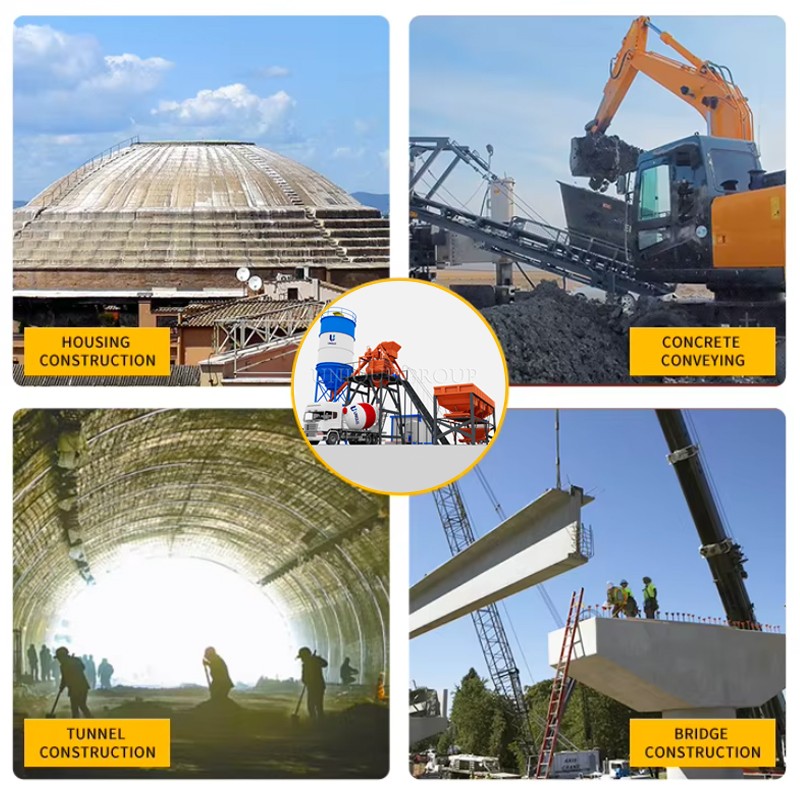
What is the purpose of concrete batching plant
Concrete mixing plants are commonly used in the following scenarios:
Large-scale projects: such as bridges, water conservancy projects, power projects, etc.
Centralized construction: suitable for projects with concentrated construction sites, long construction period and large engineering volumes.
Commodity concrete supply: provide pre-mixed concrete for construction sites to reduce pollution and resource waste from on-site mixing
With the development of municipal construction, Concrete mixing station due to its high degree of mechanization and automation, the productivity is high, the mixing station that adopts centralized mixing and provides commercial concrete has great advantages, so it has been rapidly developed, and has created conditions for promoting concrete pumping construction and realizing the joint operation of mixing, conveying and pouring machinery.
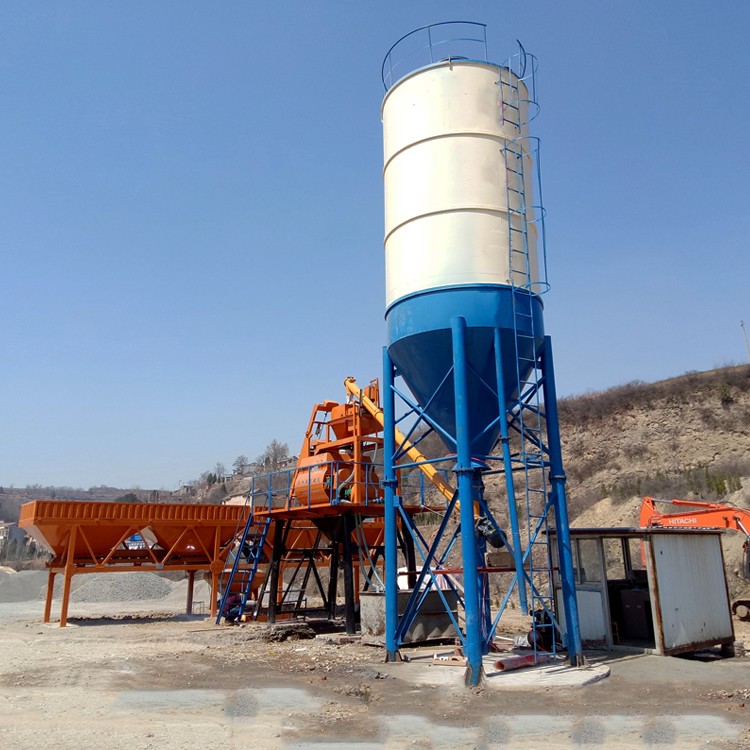
HZS25 concrete batching plant in Keyna
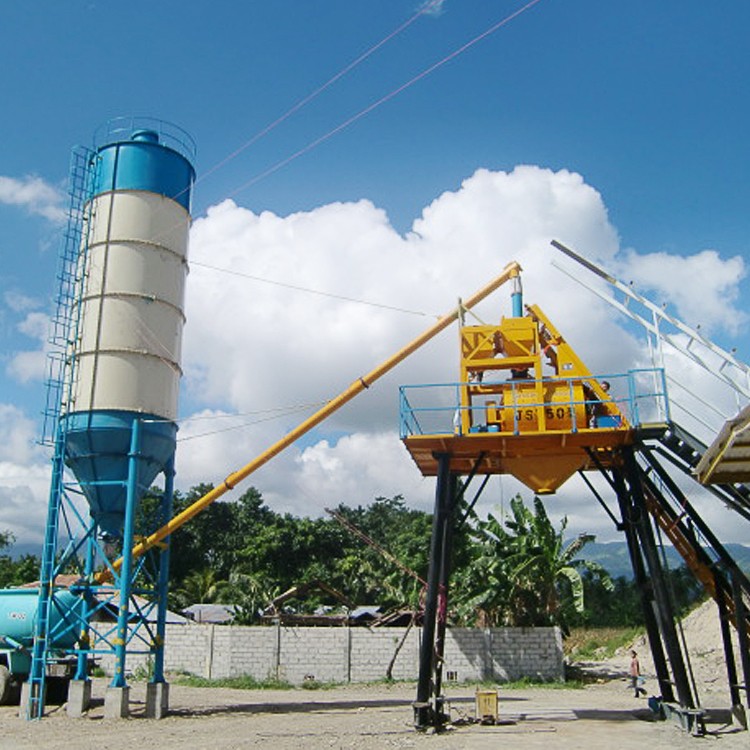
HZS35 concrete plant in Mexico
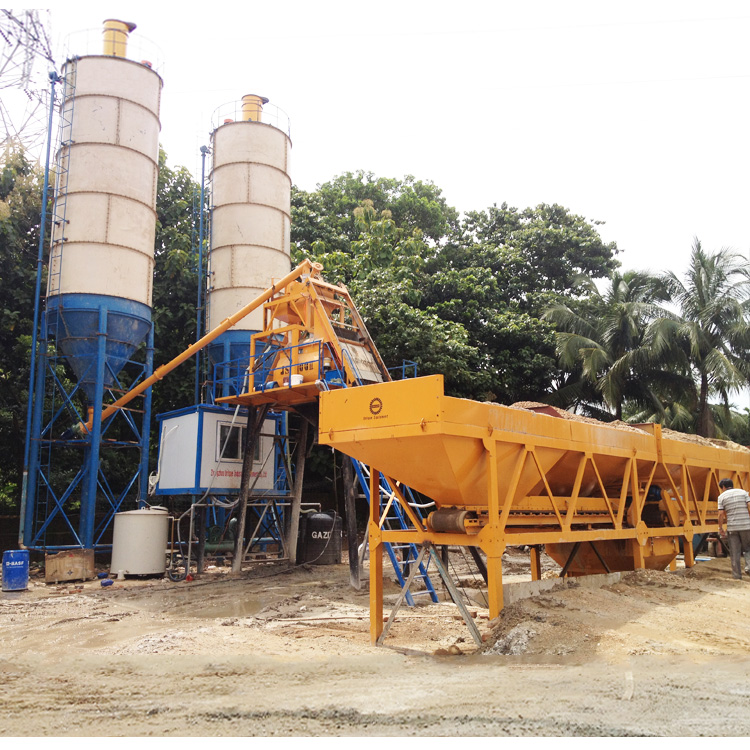
HZS50 concrete mixing plant in Bangladesh
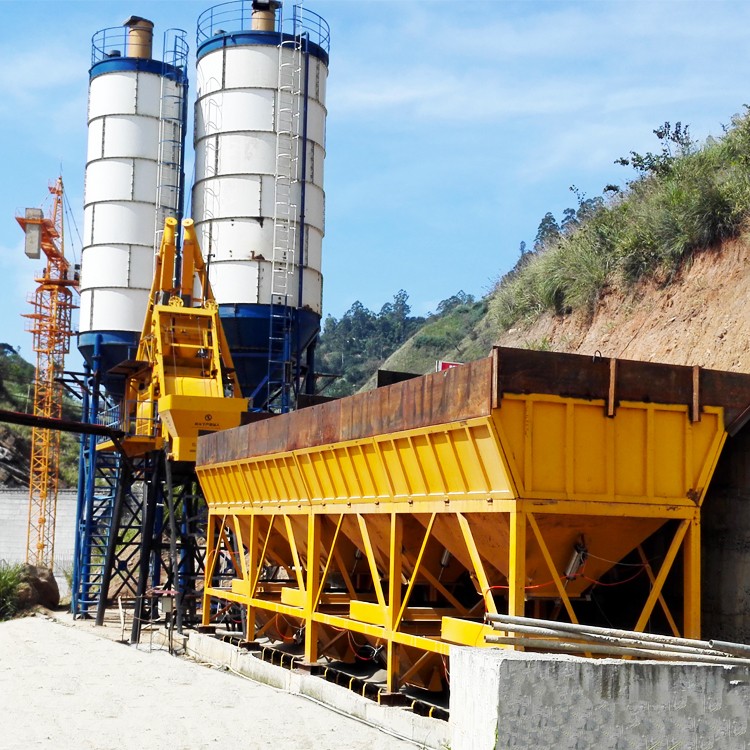
HZS75 concrete plant in Sri Lanka
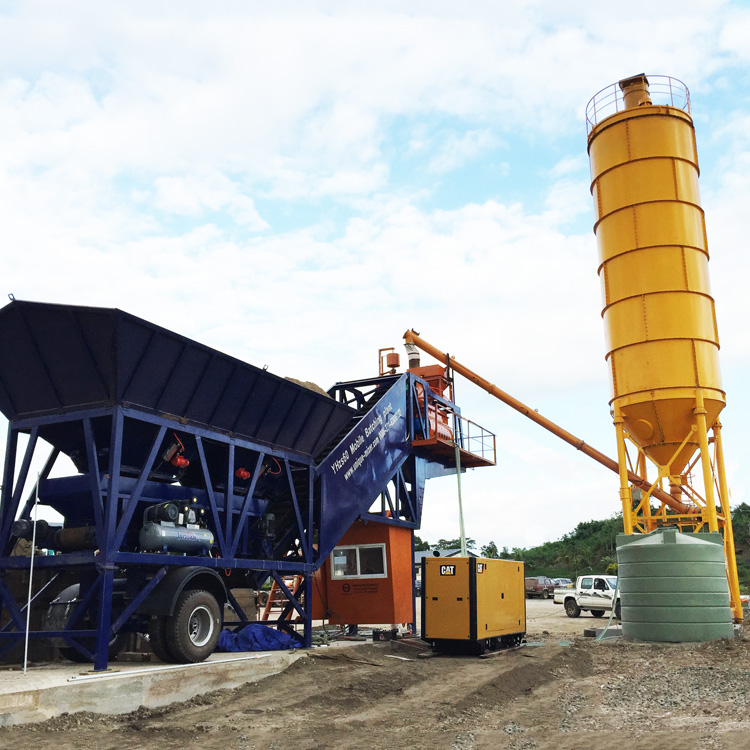
YHZS60 mobile concrete plant in Philippines
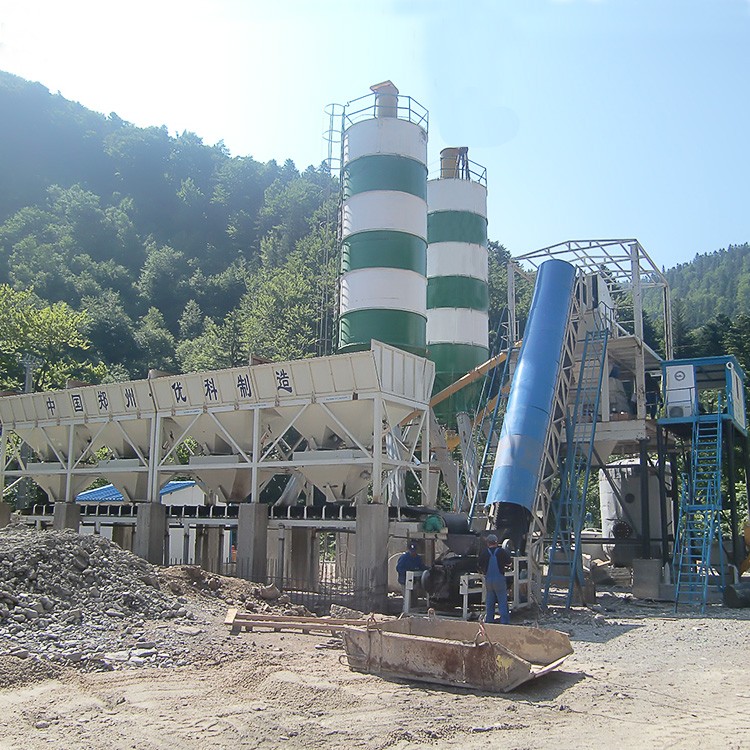
HZS60 belt type concrete plant in Tanzania
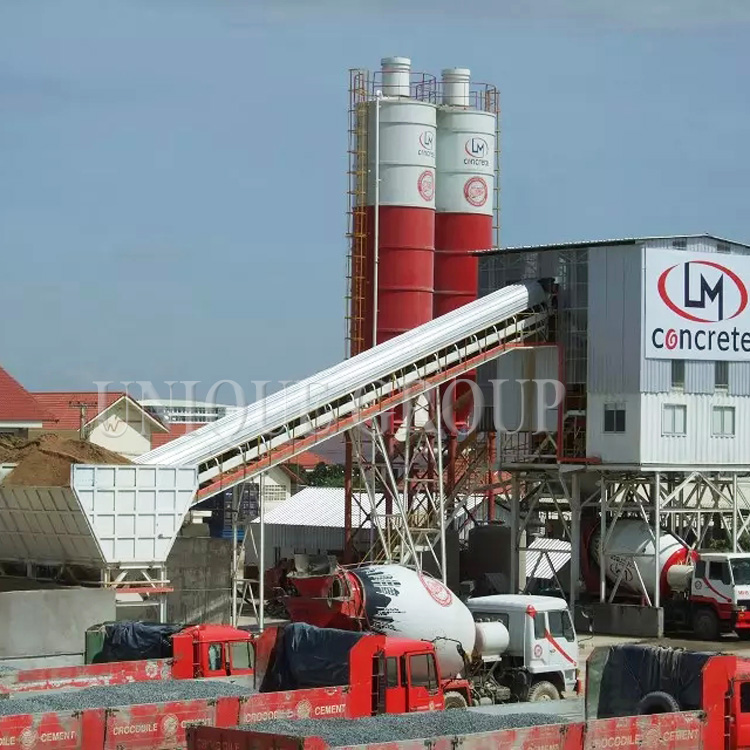
HZS90 concrete batching plant in Philippines
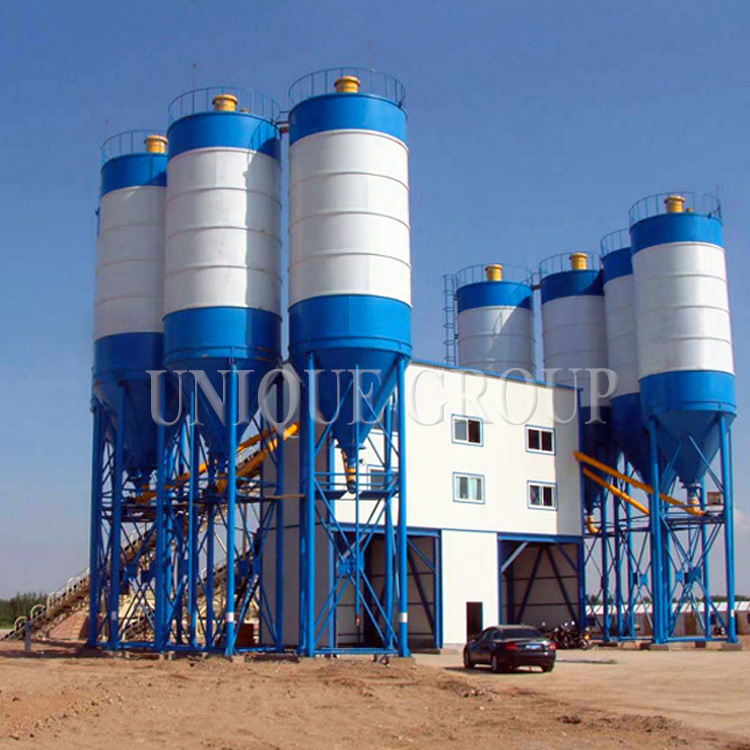
HZS180 concrete mixing plant in Malaysia
Step1: Feed Aggregates
Transport aggregates such as sand, crushed stone via a conveyor belt or hopper to a precision metering device, where they are accurately measured based on a preset proportion before being directed to the mixer.
Step 2: Add Filler
Deliver filler such as cement or fly ash to the filler metering unit by screw conveyor or pneumatic conveying system, and then add it to the mixer after accurate metering.
Step 3: Feed Water and Additives
The water/additive feed system delivers water and additives (such as water reducers and retarders) as appropriate to the mixer, in accordance with the performance requirements of the concrete.
Step 4: Mix
Upon activation of the mixing system, the rotation of the mixing blades thoroughly mixes aggregates, cement, water, and additives to form homogeneous concrete.
Step 5: Transport and Pour
After mixing is completed, finished concrete will be sent to the pouring site for construction by a delivery pump or mixer trucks.
Step 6: Clean and Maintain
After each production, clean and maintain the portable batching plant to ensure it remains clean and in optimal condition, thereby priming it for subsequent production.
Copyright © 2025 UNIQUE GROUP | All Rights Reserved
Hello, please leave your name and email here before chat online so that we won't miss your message and contact you smoothly.